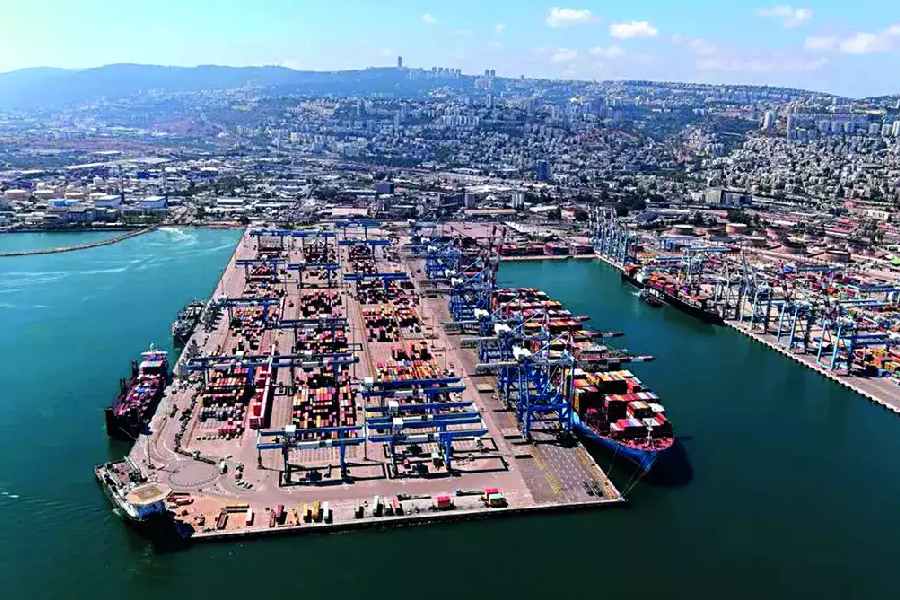The development of Chabahar Port will help India enhance its logistical capabilities and expand its trade routes to Central Asia and for that there is a need to ensure necessary infrastructure, and processes to effectively manage the cargo flow at the port, economic think tank GTRI said on Tuesday.
The Global Trade Research Initiative (GTRI) suggested that the government stick to the fact that the Chabahar Port is not under international sanctions despite being Iran's only ocean port as despite the strategic advantages, the project's success is intricately tied to the complex geopolitical environment it operates within.
India on Monday signed a 10-year contract to operate the strategic Iranian port of Chabahar. The long-term agreement was signed by Indian Ports Global Ltd (IPGL) and the Port & Maritime Organisation of Iran.
IPGL will invest about USD 120 million while another USD 250 million will be raised as debt.
The Chabahar port on the Gulf of Oman, which New Delhi had proposed to develop back in 2003, will provide Indian goods a gateway to reach landlocked Afghanistan and Central Asia using a road and rail project called International North-South Transport Corridor, bypassing Pakistan.
US sanctions on Iran over its suspected nuclear programme had slowed the development of the port.
"India should ensure that Chabahar has the necessary infrastructure, processes, and staffing to effectively manage the cargo flow. Yet the overarching stability required for such grand-scale projects remains a significant challenge due to external political pressures and regional instabilities," GTRI Co-Founder Ajay Srivastava said.
He added that the development of the port is a testament to India's strategic foresight in enhancing its logistical capabilities and expanding its trade routes to Central Asia and beyond.
According to the GTRI, Chabahar Port, comprising the Shahid Kalantari and Shahid Beheshti terminals, is strategically located about 170 km west of Pakistan's Gwadar Port. It offers an alternative maritime route to the congested Strait of Hormuz.
Chabahar is also an integral component of the International North-South Transport Corridor (INSTC), a 7,200-km multi-modal transportation route connecting India with Iran, Azerbaijan, Russia, Central Asia, and Europe.
This corridor aims to reduce transit times to about 25 days -- 20 days fewer than the Suez Canal route -- and cut freight costs by 30 per cent.
Commenting on the signing of the 10-year contract, Federation of Indian Export Organisations (FIEO) Director General Ajay Sahai said the port provides strategic advantages to India through diversification of trade routes providing access to Afghanistan, Eurasia, Central Asia, and Europe being integral part of INSTC.
"The INSTC envisages the movement of goods from Mumbai (India) to Shahid Beheshti Port Chabahar (Iran) by sea, from Chabahar to Bandar-e-Anzali (an Iranian port on the Caspian Sea) by road, and then from Bandar-e-Anzali to Astrakhan (a Caspian port in the Russian Federation) by ship across the Caspian Sea, and after that from Astrakhan to other regions of Russia and further into Europe by Russian railways," Sahai said.
He added that the strategic location of Chabahar has a "great" advantage for developing it as a transshipment hub.
"The Port's deep draft of 16 m is suitable for handling large shipment vessels. The Port lies close to some of the busiest trade routes in the world: the Asia-Europe, Asia-Asia trade route, which carries large cargo volumes.
"The movement of cargo through this route is expected to save cost by 30 per cent and transportation time by 40 per cent, ensuring quick turnaround at competitive cost," he added.
Except for the headline, this story has not been edited by The Telegraph Online staff and has been published from a syndicated feed.










